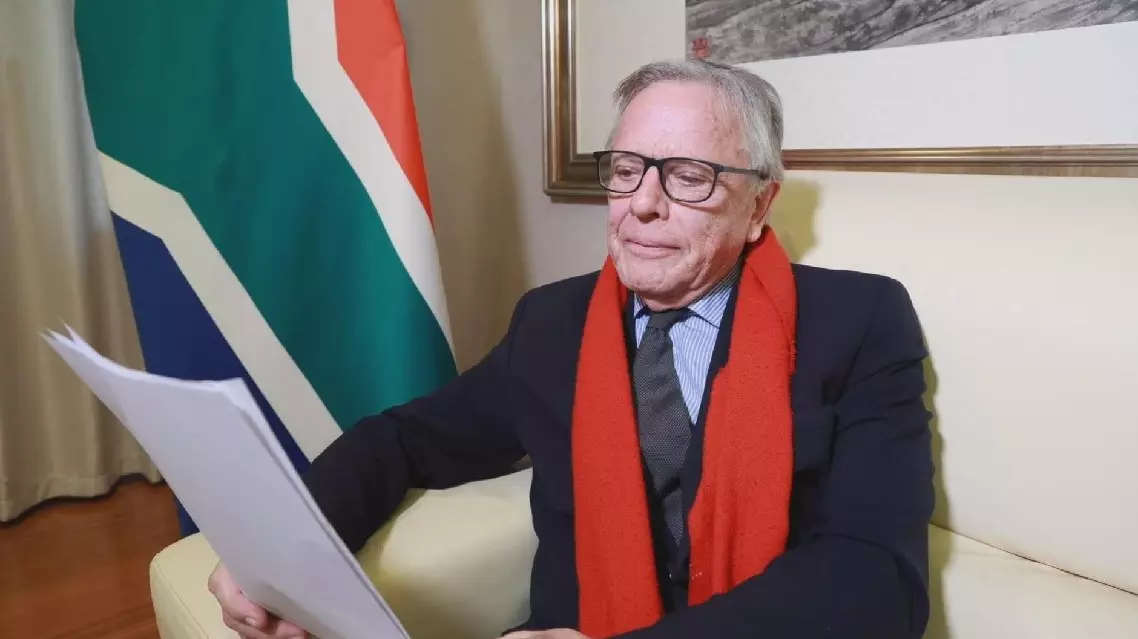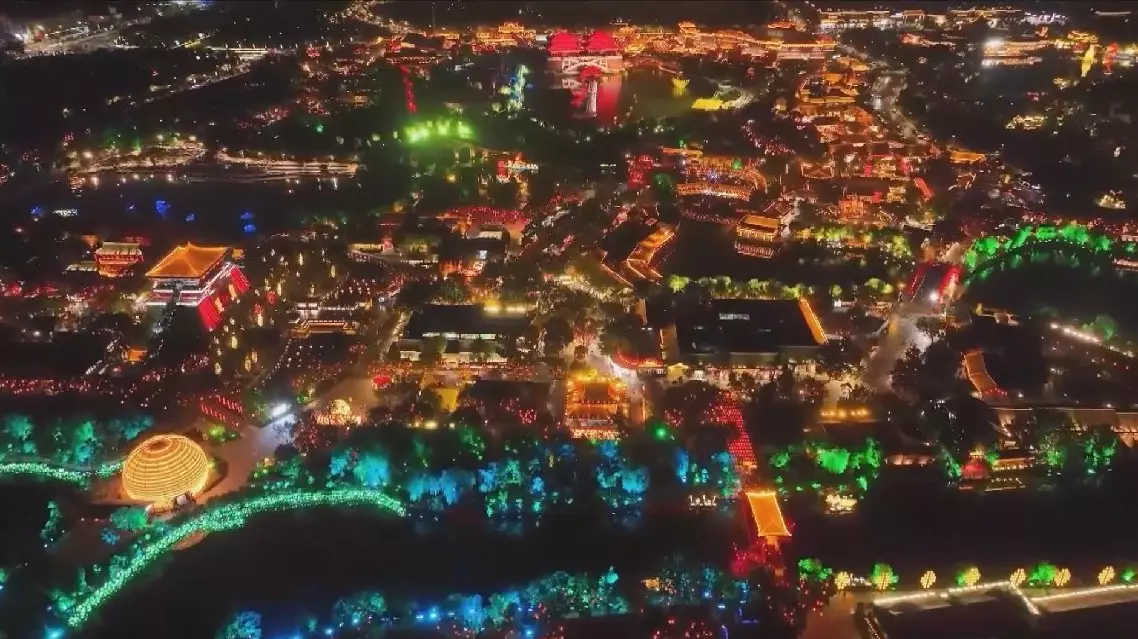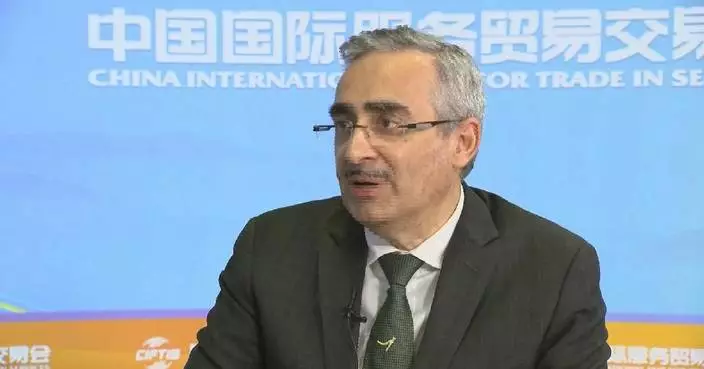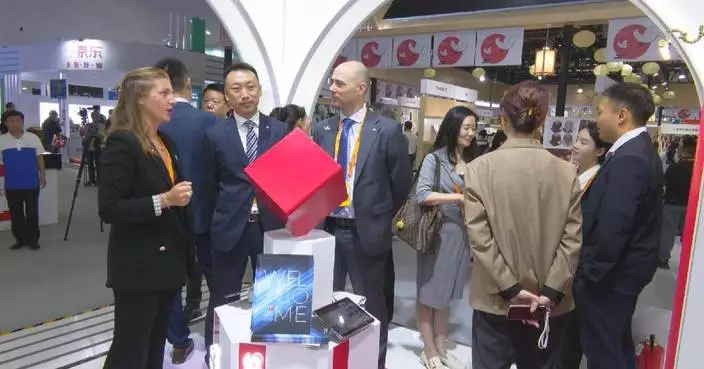African scholars feel motivated and guided after reading Chinese President Xi Jinping's reply letter encouraging them to continue to provide intellectual support for building a high-level China-Africa community with a shared future and safeguarding the common interests of the Global South.
Gert Grobler, a former veteran diplomat of South Africa and honorary professor of the Institute of African Studies at Zhejiang Normal University, and 63 scholars from 50 African countries sent a joint letter to President Xi earlier in August this year, expressing their hope that the 2024 Summit of the Forum on China-Africa Cooperation (FOCAC), which was held from Wednesday to Friday, would write a new chapter in building a China-Africa community with a shared future and the joint modernization of the Global South. Xi replied their letter on Aug 27.
"My name is Gert Grobler. I am a former diplomat. I've always said I'm not only an ambassador for South Africa, but also an ambassador for China," said Grobler after being handed over Xi's reply letter to African scholars at the Chinese Embassy in South Africa on Monday.
Grobler said he was always fascinated by China and particularly China's achievements over the last couple of decades in poverty reduction, economic growth, the aspiration to create peace in the world and development.
The former diplomat went to China in 2019 after his retirement in 2017, and was then appointed as a senior research fellow and honorary professor at the Institute of African Studies at the Zhejiang Normal University in Jinhua City, east China.
His work at the university has also gained recognition from fellow Chinese researchers of the institute.
"Ambassador Gert was recommended to the Institute of African Studies in 2019 by the Chinese Embassy in South Africa. He was later appointed as a senior adviser to our think tank. During every major diplomatic and foreign affairs event between China and Africa, he actively voiced his opinions in the media of both countries and participated in interviews," said Liu Hongwu, director of the Institute of African Studies.
Grobler mentioned writing the letter to Xi ahead of the 2024 FOCAC summit which was held in Beijing from Wednesday to Friday. It is the largest diplomatic event hosted by China in recent years and a good opportunity for participants to voice their confidence in building a stronger relationship between China and African countries have diplomatic ties with China.
"This China-Africa Think Tanks Forum, it's called CATTF, has over the years increasingly played an important role to bring scholars, academics, media together. At the discussion in Dar es Salaam, it was decided that, particularly in view of the upcoming FOCAC meeting, to write to President Xi and say to him, we need to step up the interactions in creating a better mutual understanding between our peoples, and to look at the enhancement of Africa studies in China and China studies in Africa," he said.
After making the decision, Grobler started to reach out to scholars from various fields. The Institute for African Studies has around a dozen African scholars from countries including Nigeria, Mali, Somalia and Cameroon, forming a strong team of African scholars. Through such a network, they were able to establish contact with more African scholars, and Grobler was the lead author of the letter, according to Liu.
Grobler said they feel excited to receive the reply letter in such a short time. In his reply letter, Xi expressed the hope that they will continue to offer important intellectual support for building a high-quality China-Africa community with a shared future and upholding the common interests of the Global South.
"The fact that we got this prompt response from him, in which he actually encouraged us, in a way thanked and encouraged us for the work we are already doing," the firmer diplomat said.
Meanwhile, other cosignatories also said the reply letter means how the leadership values commitment and efforts in the area.
"It's a sign that the top leadership is listening to us, to people, to us, the allies, those who are spending time thinking about the ways how to get the China-Africa [relationship] forward," said Taling Tene Rodrigue, a Cameroonian scholar who studied and currently works at Zhejiang Normal University.
As early as nine years ago, Xi pledged the commitment to mutually enriching cultural exchanges when addressing the opening ceremony of the Johannesburg Summit of the Forum on China-Africa Cooperation on Dec 4, 2015.
"We should strengthen cultural exchanges and mutual learning between China and Africa, facilitate more exchanges between the youths, women, think tanks, media, universities and other sectors of the two sides, promote cultural interactions, policy coordination and people-to-people exchanges to advance common progress and ensure the sustained growth of China-Africa friendship from generation to generation," Xi noted.
Many scholars have voiced their views on China-Africa cooperation in various fields after receiving the reply letter.
"(As) Think tanks, they have strong voices in international relation, so we have a very vital role to play as a scholar. The letter for me is a huge, huge letter that shows that what we are doing, we're doing the right thing and we are telling the Africa story, the Chinese story in the right way. And we should do more and they are there to support us," said Ehizuelen Michael Mitchell Omoruyi, a Nigerian scholar working in China who also participated in writing the letter to Xi.
"President Xi's response, in a sense, reflects an expectation for scholars in the Global South. He has provided us with clear guidance for our academic research," said Liu.
Grobler also emphasized that Chinese leader's letter serves as a significant inspiration for the scholars to continue their work.
"And he gave some guidance, you know, that we should strongly focus not only on China-Africa, but also on the Global South. We need to write our own narrative, and that's going to be part of what we will be doing in the wake now of having received the president's letter," he said.
Xi proposed 10 partnership action plans in his keynote speech at the opening ceremony of the 2024 FOCAC Summit on Thursday, aiming at jointly advancing the modernization of China and Africa.
The 2024 (FOCAC) summit has produced concrete outcomes, charting a roadmap for China and Africa to work concertedly to pursue modernization, which is poised to enhance South-South cooperation and drive global development.
The summit is the largest diplomatic event hosted by China in recent years.

African scholars motivated, guided by Xi's reply on China-Africa cooperation, Global South development









